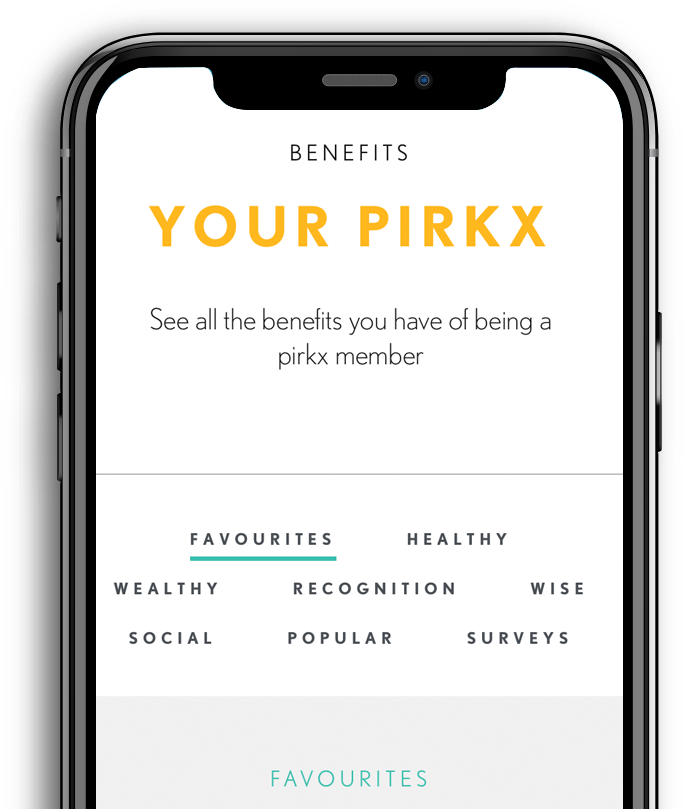- 16 June 2020
- Fleur Heazlewood at pirkx
4 minutes read
What is wellbeing?
We often hear the term ‘wellbeing’, which is different to ‘wellness’. Most commonly wellbeing is used to describe a person’s happiness or emotional state. Yet it’s much broader than this.
A good definition from the New Economics Foundation, is that wellbeing can be understood as how people feel and function on a personal and social level, and how they evaluate their lives as a whole.

Wellbeing has many dimensions
Wellbeing works on many levels. Sure, there’s your personal wellbeing. But there’s also wellbeing at the group level. This can include family, workplaces, communities and cultures, just to name a few.
Then there are all of the factors that influence wellbeing. Think of your own life. The way you ‘feel and function’ is most likely affected by what’s going on with your friends, family, health, financial circumstances and the level of choice you do or don’t have in certain situations.
One way to think about it is to break down wellbeing into key domains. These can include: mental, emotional, social, physical, work and career, financial, spiritual, community and environmental. For further guidance check out the wellbeing language and definitions guide
Wellbeing is constantly changing
Wellbeing is situational. For example, if you are under a lot of stress at work, your wellbeing might be better at home than at work. Or you may find your partner nagging about housework at home triggers frustration, but your micro managing boss doesn’t bother you.
Wellbeing is subjective. No two people have the exact same values, life goals and personality traits. So the aspects of wellbeing that are very important to you, may be more or less important to someone else.
Improving your wellbeing
Ultimately wellbeing is what is most important for you. I encourage you to look at the key domains of wellbeing in your life and identify which two areas are your greatest source of strength. And then look at ways you can leverage them.
Then choose one area of wellbeing that you are finding draining or challenging, where you have the ability to make some small positive changes.
And better yet, find ways to use your sources of strength to support your wellbeing challenges. For example, if your family relationships are a source of strength, but your physical fitness is an area of challenge for you, create a daily exercise routine with your family.
What is resilience?
Ever wondered why some people cope better with stressful situations? Sure, some of it is genetics and personality, but often it comes down to their resilience. And the great news is that this is something that you can develop.
Resilience refers to your ability to meet and overcome adversity.
Why resilience can be your biggest strength
You can’t always control the obstacles in your path. But you can choose how you react to them. That’s where your resilience comes in and it’s made up of three key aspects:
- Coping in the moment
- Bouncing back from adversity
- Building your energy reserves to draw on.
You may think your resilience is low because you get burnt out. But actually, you might be great in moments of high stress when others would crumble. Or vice versa. That’s because you can be naturally stronger in one area of resilience than another.
Yet you can boost each of these aspects by learning and using resilience skills and strategies. When you increase your overall resilience, it’s easier to continue doing your best under pressure and maintain a balanced approach to life.
Resilience strategies help you stay calm under pressure
It should come as no surprise that people who are more positive also tend to be more resilient. There a number of strategies to improve your resilience, and you can draw on them during different times in your life. Here are some examples of simple resilience strategies:
- Shape your sense of control – recognise what’s beyond your control and letting go of those things
- Exercise your choice – remember that you are in control of how you manage your feelings
- Choosing to be positive – expect good things and plan for the outcomes you want
- Take a long-term perspective – avoid allowing stressful events to be all-encompassing. As the saying goes, ‘this too shall pass’
- Be proactive – deal with pressures before they escalate
- Develop problem solving skills – learn how to come up with multiple solutions and pathways for problems
What is wellness?
The term ‘wellness’ often gets thrown around. Sometimes it’s swapped out for happiness, wellbeing and quality of life. But what are we actually referring to?
According to the World Health Organisation, wellness is: “An active process of becoming aware of and making choices toward a healthy and fulfilling life…a state of complete physical, mental, and social wellbeing, and not merely the absence of disease or infirmity.”
Sounds pretty appealing, doesn’t it?
The secret to wellness
So, there’s no magical potion. But the good news is that achieving wellness is completely within your control. That’s because wellness is about taking responsibility for the quality of your life. Often this begins with a conscious decision to create a healthy lifestyle or a wellness mindset.
Your optimal wellness will be different to the person next to you. It depends on your needs, health, experiences, personality and environment. And it can change with the ebbs and flows of daily life.
Yet one thing remains constant – wellness is making active choices to improve your wellbeing.
Why workplace wellness matters
Most of us spend 40 or more hours per week at work. That’s a lot of time. And with more and more people suffering ill-effects from overly sedentary lives, it’s time to make some changes.
Research shows that making change is often difficult. If you’ve ever been stuck in the endless ‘I’ll start tomorrow’ cycle, you’ll know what we mean.
Wellness programs and wellnees coaching can provide support for individuals to take action in improving their health behaviours. And this leads to better wellbeing.
Fleur Heazlewood: With over 20-years corporate experience and as a past CEO, Fleur Heazlewood is an expert in workplace resilience and wellbeing leadership. Having led three large corporate turnaround and business transformation programs, Fleur understands first-hand the challenges of leading people through change, building high performing resilient teams and accountability for supporting staff mental health – and how to turn mental health risk into a resilience cultural asset.
Fleur partners with CEO’s, Human Resources and managers to create positive, healthy, resilient and productive workplaces. Fleur helps leaders build personal resilience, emotional intelligence, mental health and wellbeing. She helps managers to develop positive leadership practices, build psychologically safe teams, and support staff who may not be ok.
To contact Fleur hello@blueberryinstitute.com or more wellbeing resources www.blueberryinstitute.com

- Fleur Heazlewood
- Life coach

What does Australia’s Mental Health Landscape look like in 2024?
The mental health landscape of Australia is constantly changing, making it...
MORE- 31 October 2024
- Siobhan Whalley at pirkx

Winter Mood Relief Strategies
Does your anxiety rise as it gets colder? As the weather gets cold and days...
MORE- 30 May 2024
- Hyacinta Mortel at pirkx

Empowering your Team: How pirkx Enhance your Employee’s Wellbeing
Employers pay for Employee Assistance Programmes (EAPs) to help staff members...
MORE- 23 April 2024
- Armi at pirkx

Unlocking the Potential of EAPs in the Retail Industry
In life's journey, we all encounter challenges, both personal and...
MORE- 22 April 2024
- Milene Okamura at pirkx

NURTURING A HAPPIER HEALTHIER HUMAN: The Role of Wellbeing in Education and Training Industry
In the world of Education and Training prioritizing the welfare of those who...
MORE- 3 April 2024
- Hyacinta Mortel at pirkx

Encouraging The connection
Introduction The feeling of belonging and the cooperative spirit of...
MORE- 26 January 2024
- Siobhan Whalley at pirkx

Continuing to Learn After School
Continuing to Learn After School: Education is a lifelong process,...
MORE- 4 July 2023
- Aggie at pirkx

How Virtual Gym Classes can Improve your Winter
Winter can be a challenging time for staying active and maintaining a healthy...
MORE- 2 June 2023
- Aggie at pirkx

Why is it Important for Pensioners to Prioritise Wellbeing?
As we age, our bodies and minds undergo significant changes that can impact...
MORE- 10 May 2023
- Aggie at pirkx

Saving Money as Oil Prices Rise
As the cost of oil rises in Australia due to production cuts by OPEC...
MORE- 25 April 2023
- Aggie at pirkx


5 free or cheap ways to feel better now
Wow, this pandemic just keeps on giving, doesn't it? For so many practical,...
MORE- 6 August 2021
- Ella Hamilton at pirkx

Cleaning products are boring and expensive. Find out how to save heaps!
Just a heads up - the answer is defintely not to use regular detergent in...
MORE- 4 August 2021
- Ella Hamilton at pirkx

Weight loss pills – helpful or harmful?
Many medications and supplements make this claim, but what are they, what’s...
MORE- 3 August 2021
- Ella Hamilton at pirkx

How can you find the best deals online?
These days, almost any online purchase you make comes with that nagging FOMO...
MORE- 29 July 2021
- Dylan Thomas-Barney at pirkx

Ready to save over $1,000 on tax this year?
You’ve probably heard some media buzz recently about the Low and Middle...
MORE- 29 July 2021
- Justin Mastores at pirkx

Caring without Carrying
Ever walk away from a conversation where you feel the other person has dumped...
MORE- 2 October 2020
- Fleur Heazlewood at pirkx

Can my food intake boost my immunity to fight illness?
What to eat to reduce your chance of becoming ill A healthy gut...
MORE- 13 July 2020
- Dr Natalie Mitchell at pirkx



Open up
Now you can keep pirkx wherever you go, so you never miss the best deal and you’re always comforted by the services you value.
Open up to a world of benefits and resources.
join Now

